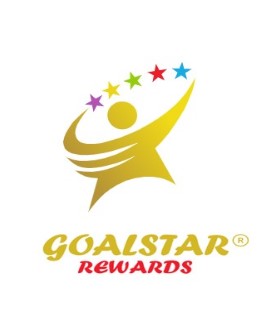Rewards for Kids -Do’s & Don’ts

“The reward of a thing well done is to have done it”. Ralph Waldo Emerson
Over the years, there have been many discussions about the value in giving rewards to kids. This is an area of interest for most parents who want to know what works at what age.
Initially, when your child is young and struggling to do the basic necessities, there could be a reward opportunity. This struggle could either be because the child doesn’t like to do it or doesn’t yet have the skills required to do it. If a child is struggling, the tasks can seem boring. Once they acquire competency it can get a lot easier. Reward might help the struggling child to put in the initial effort to build competency and confidence to move forward.
What do Rewards for kids achieve?
Reward systems rely on positive reinforcement to encourage good behaviour. Research has also shown that stressing positive behaviour helps build self-esteem. The best rewards for kids for job well done is achieving a sense of internal satisfaction. This type of a "reward" is long lasting and helps to build self-esteem.
Even as adults, we look forward to rewarding ourselves if we think that we have put in more than average effort. This could be in the form of leaving work early after a busy week, or asking for a pay rise. Rewards are part of our everyday life.
What about the ethics in providing a reward versus just a pat on the back? Some parents worry that giving a reward means that they are “bribing” their kids to do things that they are meant to be doing voluntarily. They believe that once the rewards stop, the child will revert back to not doing it any more.
Here are few Do’s and Don’ts to consider when thinking about rewards for kids;
Do's
-
 Customize the reward based on your Childs age, personality and interest.
Customize the reward based on your Childs age, personality and interest. Awarding points or stickers can help kids get started but as they grow you will need to gradually elicit their intrinsic motivation by connecting the task/behaviour to something that they can see value in.
Awarding points or stickers can help kids get started but as they grow you will need to gradually elicit their intrinsic motivation by connecting the task/behaviour to something that they can see value in. If you use a rewards mechanism, look at deducting points or imposing penalties for bad behaviour. Clearly explain to the child the reasoning behind the penalty.
If you use a rewards mechanism, look at deducting points or imposing penalties for bad behaviour. Clearly explain to the child the reasoning behind the penalty. Like Adults, the children can sometimes procrastinate over completing a task. The way you can help is by putting forward some incentive for completing the task, for example, finish homework and have time to play at 5pm before dinner.
Like Adults, the children can sometimes procrastinate over completing a task. The way you can help is by putting forward some incentive for completing the task, for example, finish homework and have time to play at 5pm before dinner. Stick with it- as tracking your Childs efforts take time, effort and motivation from you as well. But it will work if the good behaviour becomes a habit.
Stick with it- as tracking your Childs efforts take time, effort and motivation from you as well. But it will work if the good behaviour becomes a habit. The reward should be proportionate to the chore and age-appropriate. Paying children lots of money for daily tasks would be unreasonable, and for most families financially not possible. If you choose to pay children for chores, it should be reasonable for your family’s finances and the difficulty of the chore.
The reward should be proportionate to the chore and age-appropriate. Paying children lots of money for daily tasks would be unreasonable, and for most families financially not possible. If you choose to pay children for chores, it should be reasonable for your family’s finances and the difficulty of the chore. The way you respond right after your child's behaviours makes the behaviour more or less likely to happen again. Rewards can help get your child to do more of the things you want them to do.
The way you respond right after your child's behaviours makes the behaviour more or less likely to happen again. Rewards can help get your child to do more of the things you want them to do.
Don'ts
-
 Try not to use unhealthy food, like lollies or chocolates as a reward to get your child to do their tasks. This can create an unhealthy association that can defeat the purpose. The positive behaviour will get negated by unhealthy reward which can impact on their health and well being.
Try not to use unhealthy food, like lollies or chocolates as a reward to get your child to do their tasks. This can create an unhealthy association that can defeat the purpose. The positive behaviour will get negated by unhealthy reward which can impact on their health and well being. Avoid continually nagging your child to get them to complete their chores. Instead, make it clear to them what is expected and the consequences for not doing them. Leave it to them to work out, within constraints, when they can do them. This will give them a feeling of control and develop responsibility. Too much of negative feedback and discipline can be ineffective and make them lose their self-confidence.
Avoid continually nagging your child to get them to complete their chores. Instead, make it clear to them what is expected and the consequences for not doing them. Leave it to them to work out, within constraints, when they can do them. This will give them a feeling of control and develop responsibility. Too much of negative feedback and discipline can be ineffective and make them lose their self-confidence. Is not that you have to use rewards to be a good parent. Different kids respond to different stimulus. What might work for one might not be effective for another. We, as parents, constantly need to try out different ways to be responsible and do the right things. It is a marathon and not a sprint. We need to work closely with our children and lead by example for them to follow. Their minds are like wet clay and we need to work carefully to mould them to beautiful shapes.
Is not that you have to use rewards to be a good parent. Different kids respond to different stimulus. What might work for one might not be effective for another. We, as parents, constantly need to try out different ways to be responsible and do the right things. It is a marathon and not a sprint. We need to work closely with our children and lead by example for them to follow. Their minds are like wet clay and we need to work carefully to mould them to beautiful shapes.  Always tailor your incentives to the age-appropriate behaviours that challenge their abilities. For example, while you can offer to take a 5 year old to a movie if they brush their teeth in the morning and night for a month, you cannot do that for a 12 year old. A 12 year old is expected to b rush their teeth every morning and night without any incentive, as they would know that otherwise they might need to visit a dentist and go through a lot of pain.
Always tailor your incentives to the age-appropriate behaviours that challenge their abilities. For example, while you can offer to take a 5 year old to a movie if they brush their teeth in the morning and night for a month, you cannot do that for a 12 year old. A 12 year old is expected to b rush their teeth every morning and night without any incentive, as they would know that otherwise they might need to visit a dentist and go through a lot of pain.
Rewards like everything in life is about balance and ultimately working out what works best for your family and at different life stages.
For further reading about rewards – please refer below links:
https://www.cdc.gov/parents/essentials/consequences/rewards.html
https://www.sharecare.com/health/parenting/how-should-reward-childs-accomplishments
GSR Tips & Tricks
How best to use Goalstar Rewards to help your child achieve their goals?How It Works
Goalstar Rewards offers 4 weeks free trial for each child. Register to Start 4 Weeks Free Trial!
 \
\
